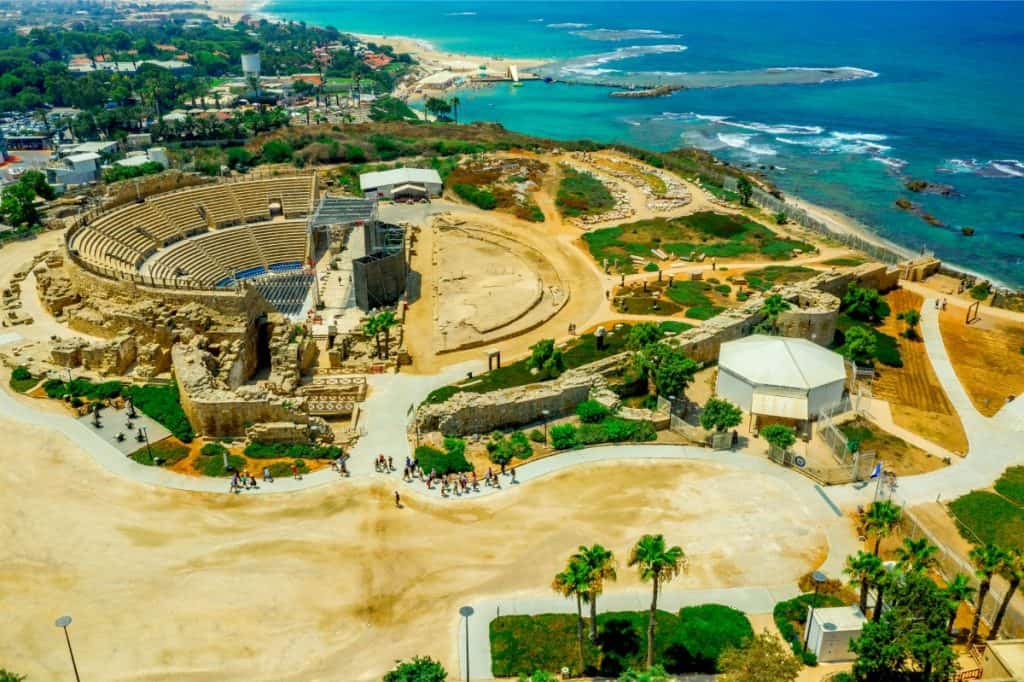St. Procopius of Scythopolis is the First Martyr of Caesarea Maritima. He died on July 7th in 303 CE.
After the Battle of Actium, Herod the Great establishes the city of Caesarea Maritima. And by calling it Caesarea he honors Augustus his benefactor. In the year 6 CE., Caesarea becomes the Capital of Judea. Caesarea was a Greco-Roman city with a large gentile population and a minority of Jews. By Paul’s time, the inhabitants also included some members of the early church. In fact, the New Testaments narrate that in one of Paul’s travels they reached Caesarea. And they all went into the house of Philip the Evangelist, one of the seven; and stayed with him. Then the New Testament goes on and says that some of the disciples from Caesarea joined Paul on his journey to Jerusalem. (Acts 21:8,15-16)

Along the centuries, and especially in the 5th and 6h centuries, Caesarea becomes a major Christian center. One of the famous figures in that regard is St. Procopius; a famous ascetic; erudite theologian and philosopher. Eusebius of Caesarea wrote of his martyrdom, which occurs during the persecution of Roman Emperor Diocletian. And stated that “he was born in Jerusalem but he had gone to live in Scythopolis. Where he held three ecclesiastical offices. Moreover, he was a reader and interpreter in the Syriac language. And cured those possessed with evil spirits.” Furthermore, Eusebius wrote that Procopius was sent with his companions from Scythopolis to Caesarea Maritima, where he was decapitated.
St. Procopius Refuses to Worship the Roman Gods
Procopius and some companions went to Caesarea Maritima. After entering the city, he was arrested. Now Flavian, the judge, urged Procopius to sacrifice to the gods. He loudly replies that there are not several gods; but only one God. And he is the creator and author of all things. So Flavian then tried a different tack in hopes of saving Procopius’ life. Eventually, He asks if Procopius would sacrifice instead to the emperors, Dioclesian, Herculius, Galerius, and Constantius.
Procopius answered: “Listen to this verse from Homer: ‘It is not good to have several masters; let there be only one ruler and one king.’” With that, Flavian ordered the execution of Procopius. He was beheaded, making him the city’s first martyr. Shrines in honor of him in Caesarea and Scythopolis date to at least the 5th century.
Saint Procopius of Scythopolis: Veneration
In Scythopolis a chapel was dedicated in honor of him. Also in Caesarea Maritima, the Roman Emperor Zeno erects a church dedicated in honor of him in 484 CE. Perhaps it is the Octagonal Church that was built instead of the Roman Temple for Augustus and Rome?. Just above the small port of Caesarea, that’s something we are not sure about a hundred percent.

